Sunday 10 February 2008
saw the 2007 Dial-a-Cab AGM held again at the Brewery in
Chiswell Street.
What follows are not the official minutes, but an unofficial record
of the meeting as captured by Call Sign Editor, Alan Fisher. It
is not a full record and neither should it be taken as including
every word said or indeed the exact wording spoken. A brief
Editor’s estimation of the attendance put it at 82. Some
paragraph grammar has been sacrificed in order to make the long
report as compact as possible...
The meeting opened at 11.05 with Chairman Brian Rice asking for the traditional
one-minute silence to remember those members who had passed away
during the past 12 months. Approval for the presence of a sound
engineer and Mike Tovey from DaC Accountants Chantrey
Vellacott, was given.
To approve the minutes of the 2006 AGM
There were no questions.
Matters arising
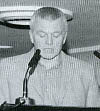 First
to speak was Paul Tully (Y40) who spoke on whether DaC rules
allowed us to operate our Concierge system and disagreed with
the Chairman’s assessment of the situation given at the previous
AGM. Paul believed that the system serviced the private hire
community, which he claims went against the rules. First
to speak was Paul Tully (Y40) who spoke on whether DaC rules
allowed us to operate our Concierge system and disagreed with
the Chairman’s assessment of the situation given at the previous
AGM. Paul believed that the system serviced the private hire
community, which he claims went against the rules.
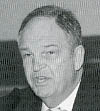 Brian
Rice disagreed with Paul’s assessment and said that DaC did
not service the private hire industry, but serviced our clients.
He spoke of the number of platforms similar to Concierge that
were now available and added that if we did not provide
Concierge, there would be others who would – some of which were
not even connected to the cab industry but software houses just
selling the system. He made the point that the wheel could not
be uninvented and that we had to take these people on at their
own game. He said that £17million of work went through Concierge
of which over £10million came to DaC and ended by saying that he
disagreed with Paul’s interpretation of the rules. Brian
Rice disagreed with Paul’s assessment and said that DaC did
not service the private hire industry, but serviced our clients.
He spoke of the number of platforms similar to Concierge that
were now available and added that if we did not provide
Concierge, there would be others who would – some of which were
not even connected to the cab industry but software houses just
selling the system. He made the point that the wheel could not
be uninvented and that we had to take these people on at their
own game. He said that £17million of work went through Concierge
of which over £10million came to DaC and ended by saying that he
disagreed with Paul’s interpretation of the rules.
Paul came back and said that he agreed Concierge was here to
stay but just didn’t like the way it was brought in. He said it
came down to the interpretation of the rules and that he
believed the Chairman’s interpretation was wrong. The exchange
ended with Paul and Brian saying that they would have to agree
to disagree.
Chairman’s Report on the financial statements for year ending
31 August 2007
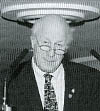 First
to question the Chairman was Stanley Roth (Y53). He asked
about Brian’s comments on making the BoM more professional and
queried whether he was suggesting a parliamentary system where
we would have more civil servants, but still vote for the Board? First
to question the Chairman was Stanley Roth (Y53). He asked
about Brian’s comments on making the BoM more professional and
queried whether he was suggesting a parliamentary system where
we would have more civil servants, but still vote for the Board?
The Chairman replied that the answer was yes. He added that this
was his personal view and had been for some time and that the
Board and members all know that he held that view. He believed
future Boards should take a more strategic view, deciding what
the future role of the Society was and how we could take it
forward, but that you then needed a top layer of professionals
who would ensure that policy was carried out on a day-to-day
basis. He added that DaC was continuing to grow and that having
passed the £50million PA income, we had ventured from being a
medium-sized company into a large one. He also said that we
would still need a Board, but unlike the way we currently have
one and that we would need people who are trained for specific
jobs and that these people should be interviewed and employed on
merit. Stanley then asked whether that meant that Board members
would spend less time in the office? Brian said yes, but that it
should be remembered that in the 12-year lifetime of this BoM
they had taken the Society from an income of £18million to its
current £53.25million, so he was in no way suggesting that the
Board should be disbanded, only that we had to move over to an
even more professional platform.
Paul Tully (Y40) then returned to the rostrum and quoted from
the Chairman’s Report where he wrote of moving ahead or standing
still. Paul said that he did not envisage the Board just
allowing the world to pass it by and that as a Friendly Society,
we have always coped well and had done so up to the present day.
He spoke of the demise of Enron, the American energy
company, which also took the respected accounting firm Arthur
Anderson with it and compared that to the successful
continuation of DaC under its present guise. He said that we
needed to enlist from within our membership as we had always
done, but added that we should do so with a more
forward-thinking outlook. Paul’s view was that as cab drivers,
the BoM knew the job and that as elected representatives, if
they were not up to the job then they should stand down. He
ended by congratulating the current Board for continuing the
legacy of a successful DaC through what has not always been an
easy road, yet had still "taken us to the next level."
Brian thanked Paul and said that although they disagreed on how
it should be done, both wanted the same success for the Society.
He also spoke of the period in the early nineties when DaC
almost ceased to exist. He added that in the end, if there was a
strong anti-feeling against his ideas for the future, then the
Society would probably retain the status quo. However,
should there be no hard feelings against, the Society would
probably begin to employ professionals as no rule changes were
needed to begin that process. He reminded those present that it
was as late as 1996 that we used to have a Treasurer until we
took on an accountant in order to deal with the Society’s
day-to-day running. "We have a professional IT man and HR
department. It’s just progress," Brian said and the way he
believed we had to go.
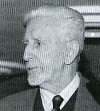 Next up was John Edwardes (H05) who said that he agreed
100% with Paul Tully. He said that his future time left with DaC
wasn’t that long. He spoke of the war’s end and how Britain had
so much of the world’s car manufacturers and asked how many were
still left? He added that so much of our manufacturing base had
now gone and compared it to DaC, which in his words "…had been
bloody successful – and I don’t feel like changing it!"
Next up was John Edwardes (H05) who said that he agreed
100% with Paul Tully. He said that his future time left with DaC
wasn’t that long. He spoke of the war’s end and how Britain had
so much of the world’s car manufacturers and asked how many were
still left? He added that so much of our manufacturing base had
now gone and compared it to DaC, which in his words "…had been
bloody successful – and I don’t feel like changing it!"
Brian Rice replied that one of the reasons DaC had been so
successful is because they had not been afraid to bring in
changes and added that he remembered the days when if DaC had to
introduce new terminals or to move to a new building, they first
had to call an EGM! Now, he said that thanks to strong
leadership and management, the Society had moved away from all
that and he wanted to see that maintained in the future, which
was the only reason he was suggesting change. He finished his
response by saying that following publication of the report, not
one member had called to complain about his suggestion. "Members
aren’t afraid to phone or email me when they disagree strongly
with something, so I must assume that they are not totally
against it," he added.
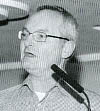 Laurence Kelvin (W88) was next up. He asked about the
chain of command if we began to employ more professionals
and wondered who would answer to whom? He gave Sales as an
example. Brian Rice responded by saying that in actual
fact there had been no one in charge of Sales since last
February and that he had been doing the job. The problem was
that because DaC has been so successful, as soon as we got
someone to head Sales, someone comes along and "pinches" them!
He added that it could be that no one from the BoM would be
associated with that position, but would actually instruct
whomever did the job which direction we’d like to go. The Board
might suggest targeting a particular group and whoever was doing
the job would report directly to the BoM. Laurence came back and
gave another example as in if someone was brought in and wanted
to change door logos, would they have the authority to go ahead?
Brian again responded that it would be a Board decision.
Laurence came back a third time and praised Brian’s leadership.
He claimed that he was very underpaid for what he did and
queried whether if professionals came in, they would have to be
paid market rates and would then be earning far more than the
boss – ie the Chairman? Brian said it depended on whom you
employed, adding that even now on an hourly basis, he wasn’t the
highest paid member at DaC House. He said that no one could know
what the future would bring but that if his suggestion were to
come about, the BoM could turn round and say that the Chairman
should only work one day a week or on the other hand could say
that he could apply for the position of Chief Executive Officer
(CEO).
Laurence Kelvin (W88) was next up. He asked about the
chain of command if we began to employ more professionals
and wondered who would answer to whom? He gave Sales as an
example. Brian Rice responded by saying that in actual
fact there had been no one in charge of Sales since last
February and that he had been doing the job. The problem was
that because DaC has been so successful, as soon as we got
someone to head Sales, someone comes along and "pinches" them!
He added that it could be that no one from the BoM would be
associated with that position, but would actually instruct
whomever did the job which direction we’d like to go. The Board
might suggest targeting a particular group and whoever was doing
the job would report directly to the BoM. Laurence came back and
gave another example as in if someone was brought in and wanted
to change door logos, would they have the authority to go ahead?
Brian again responded that it would be a Board decision.
Laurence came back a third time and praised Brian’s leadership.
He claimed that he was very underpaid for what he did and
queried whether if professionals came in, they would have to be
paid market rates and would then be earning far more than the
boss – ie the Chairman? Brian said it depended on whom you
employed, adding that even now on an hourly basis, he wasn’t the
highest paid member at DaC House. He said that no one could know
what the future would bring but that if his suggestion were to
come about, the BoM could turn round and say that the Chairman
should only work one day a week or on the other hand could say
that he could apply for the position of Chief Executive Officer
(CEO).
Laurence then asked whether current Board members would be able to
apply for any of the positions advertised for incoming
professionals? Brian’s answer was that it could happen and there
were some BMs who are very proficient at what they do, but added
that some drivers tended to hang onto his every word and would
call that jobs for the boys. But that wasn’t the case and it
would be the best man getting the job. Brian went over his
suggestion again and said that several of the BoM were already
part-time with Mike Son and Allen Togwell doing 3 days a week,
while Allan Evans and Tom Whitbread did four days. Keith Cain
running the Call Centre and Brian as Chairman were on five days.
"So," said Brian, "to some extent we have already introduced the
idea." He went on to say that he felt it should now be taken to
the next stage and called it advancement and ended by saying
that the suggestions were his views of how things should go in
the future, but that the final decision would not be his alone.
In response to a Laurence point on costs, he said that he felt we
needed 2 or 3 good people brought in and that could cost around
£250,000 a year but against that you would be making savings
with some BMs not having such a ‘hands on’ approach and needing
fewer hours. Good people do come at a cost, said Brian, but for
a company as successful as DaC has become, that amount wasn’t
such a lot. Brian then pointed to the Chairman’s Report showing
increased cost for new staff and said that many new staff had
already been employed this year and that it represented an 11%
increase, but then qualified that by putting it against DaC’s
34% growth over the past 2 years and said that if we wanted to
maintain our growth, then it couldn’t be done without more good
staff. Laurence then spoke of chaos in the NHS, as an example,
when an extra tier of management were brought in. Brian said
that he didn’t consider that would apply to DaC and that
provided you got the right people in first time, we should have
no problems in that respect.
|
ALL YOU NEED TO KNOW ABOUT
THE 2007 DAC AGM
Photos: Ray Sorene (A53) |
|
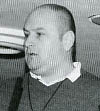 Trevor Denton (Y18) was next up to question Brian. He
reiterated Laurence’s point on costs and said that if we could
get the extra people we required for £250,000 we’d have done
well, but went on to ask about current BMs applying for
positions that they were already currently doing anyway? Brian
said that the point was good and added that if he were the owner
of DaC, he would be concerned and called the structure of the
Society ‘flaky’, depending too much on certain individuals. He
said that there were no contracts or terms of employment and BMs
who ran the business were employed on an hourly basis. That’s
wrong, said Brian. They could get up from this
Trevor Denton (Y18) was next up to question Brian. He
reiterated Laurence’s point on costs and said that if we could
get the extra people we required for £250,000 we’d have done
well, but went on to ask about current BMs applying for
positions that they were already currently doing anyway? Brian
said that the point was good and added that if he were the owner
of DaC, he would be concerned and called the structure of the
Society ‘flaky’, depending too much on certain individuals. He
said that there were no contracts or terms of employment and BMs
who ran the business were employed on an hourly basis. That’s
wrong, said Brian. They could get up from this
AGM and we’d have no tie on them whatsoever. In a £52million
business, you need to tie people down and should they leave, you
need to make sure they cannot work in this industry for at least
a two-year period. If you got rid of them, it could cost you
‘garden leave’ but his view was that it could not be allowed to
continue like this.
Trevor came back saying that our turnover wasn’t bad for a
‘flaky’ company, but Brian responded that he was indeed proud of
our achievements but other than the Secretary (Howard Pears),
not one member of the BoM was tied down by a contract and that
was a danger to DaC.
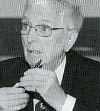 Allen Togwell then entered the debate by saying there was a
lot of experience within the BoM but that it was possible that
the entire Board could come off in one fell swoop and could be
replaced by six "radicals." Brian Rice added that should
the BoM go to more of an advisory capacity with professionals
being brought in, that type of event would be far less likely
because any new people of that calibre would be tied down by a
contract.
Allen Togwell then entered the debate by saying there was a
lot of experience within the BoM but that it was possible that
the entire Board could come off in one fell swoop and could be
replaced by six "radicals." Brian Rice added that should
the BoM go to more of an advisory capacity with professionals
being brought in, that type of event would be far less likely
because any new people of that calibre would be tied down by a
contract.
Russell Poluck MBE (T55) then asked whether an emergency
proposition could be put to members present asking that
contracts be issued to BMs? The Chairman replied that wasn’t
possible because all members would have to vote on it and not
just those present.
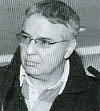 John Rubini (F55) was next and spoke of Concierge. He wanted
confirmation that it would only be put into accounts who agreed
to have Concierge only and who did not use any PH companies that
weren’t on the system. Brian said that in most cases that still
applied. The exceptions were where directors from some accounts
had made their own arrangements. Perhaps they lived out of town,
he said, but went on to confirm that the vast majority of
Concierge users had it as it was originally set up.
John Rubini (F55) was next and spoke of Concierge. He wanted
confirmation that it would only be put into accounts who agreed
to have Concierge only and who did not use any PH companies that
weren’t on the system. Brian said that in most cases that still
applied. The exceptions were where directors from some accounts
had made their own arrangements. Perhaps they lived out of town,
he said, but went on to confirm that the vast majority of
Concierge users had it as it was originally set up.
Changing subjects, John then asked about any possible restructuring
and the re-advertising of posts within DaC, hinting that the
current BoM might get the available positions. Brian said that
the BoM got on very well and despite rumours to the contrary,
there were no splits on the BoM and in response to a further
point from John about private sector pay rates, gave his view
that any increase in cost should the BoM go to a 3-man Board of
professionals, would cost the Society very little because of the
money saved.
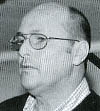 Pat Keefe (G01) asked whether if any current BMs applied for
a new position, would they then have to give up their membership
of the Society pointing out that members would have loyalty to
DaC, whereas employed persons would not necessarily have the
same emotion?
Pat Keefe (G01) asked whether if any current BMs applied for
a new position, would they then have to give up their membership
of the Society pointing out that members would have loyalty to
DaC, whereas employed persons would not necessarily have the
same emotion?
Brian Rice admitted that he hadn’t thought of that question,
but as a first thought couldn’t see why they should have to. Pat
then asked whether BMs whose days were dramatically cut would
then go back to driving cabs? Brian said that in all probability
they would. Pat added that we had lost our last two Sales execs
which showed how little loyalty employed personnel had. Brian
said that because we were so successful, other companies looked
at our staff and that the two he referred to had left after
being offered much better salaries. He did add though that since
losing the last Sales exec last February, it hadn’t made one jot
of a difference as we hadn’t lost any of our large accounts. Pat
ended by going back to an answer Brian had given Paul Tully
regarding Concierge and private hire companies, but Brian
reiterated the answer he had given earlier and said that Pat had
misunderstood it. Brian was concerned that some of the providers
of Concierge-like ground transportation systems were trying to
sell them to our accounts on the strength that these software
houses were totally unaffiliated to any taxi or private hire
company, leaving the account to choose whomever they wanted –
something that would cause damage to DaC. Pat finished by
mentioning T-accounts and felt we were ‘sweeping up.’ He asked
why we couldn’t raise the minimum fares on those trips? Brian
pointed out that the average T-trip was now £36 with some
weekend trips having a £66 average. "That’s hardly rubbish,"
said the Chairman, "but in the end it’s up to the drivers."
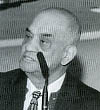 Sid Nathan (K88) was next up to his usual cheer after
informing some drivers to be quiet while he was talking! He then
went onto his point that DaC did not need any outsiders to help
run our business. "With a £52million turnover, we are doing very
well with our current Board," he said to a round of applause,
"we don’t need anyone else!"
Sid Nathan (K88) was next up to his usual cheer after
informing some drivers to be quiet while he was talking! He then
went onto his point that DaC did not need any outsiders to help
run our business. "With a £52million turnover, we are doing very
well with our current Board," he said to a round of applause,
"we don’t need anyone else!"
Brian responded that what Sid was missing was that as Allen Togwell
had reiterated earlier, our business was vulnerable because the
Board could just get up and leave as there was nothing to tie
them to the company. Sid then suggested that every BM have a
deputy who could take over should the BM leave. When Brian said
that would double our overheads, Sid corrected him to loud
laughter by saying that they wouldn’t actually be employed as
such, but would be on standby "…as though they were waiting on
the Finsbury Square rank!" He said that if a BM left, his deputy
would be called into action. Brian thanked Sid and promised
(possibly with his tongue in his cheek) to make a note of his
suggestion!
Trevor Denton (Y18) made his second visit to the rostrum and
asked about job interviews and how a fair decision could be made
about who gets what if the current BoM were involved in the
process? Brian said that any interviews would be completely
impartial and spoke about how our HR manager was interviewed as
an example. None of the BoM other than Howard Pears and the
Chairman was involved. Questions on the Chairman’s Report ended
at midday.
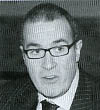 Mike
Tovey of Society Auditors Chantrey Vellacott went through the
balance sheet next Mike
Tovey of Society Auditors Chantrey Vellacott went through the
balance sheet next
Mike’s bottom line was that we’d had a good year showing a
very healthy position and that we had also done very well
gaining a much higher price for Brunswick House than expected.
He also gave an explanation on a rule change regarding a tax
change that was to be voted on later in the meeting. Brian
thanked Mike and said that had it not been for Mike and his
company, DaC would have been paying substantial amounts of
corporation tax on all surpluses, whereas we now will probably
have to pay tax just on any accrued interest at the bank. A huge
difference and benefit to DaC. "They cost us enough," joked
Brian, "but they’re worth it!" Applause broke out as Brian added
that DaC now had £3.1million in the bank.
John Rubini (F55) asked Mike whether the Revenue could force us
to change our status? He said no, they couldn’t, but they have
argued about exactly what our status is because they see huge
surpluses and compare it to big business rather than a "golf
club." Mike added that the battle as to being taxed as a Mutual
was ongoing and that "one day we would lose."
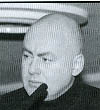 Joe Brazil (K16) then asked for confirmation that we were
still under the Friendly Society Act and wondered whether the
tax people had the power to change our status? Mike responded
that the tax situation was unconnected with DaC’s actual status
and that the only problem was that the revenue considered our
mutual status to be a long way from the way we carry out
business due to our success. He added that only DaC drivers
could change our status and that regardless of whether we stayed
that way, eventually we would probably lose the taxation battle
and have to pay tax on "profits" rather than just on interest at
the bank.
Joe Brazil (K16) then asked for confirmation that we were
still under the Friendly Society Act and wondered whether the
tax people had the power to change our status? Mike responded
that the tax situation was unconnected with DaC’s actual status
and that the only problem was that the revenue considered our
mutual status to be a long way from the way we carry out
business due to our success. He added that only DaC drivers
could change our status and that regardless of whether we stayed
that way, eventually we would probably lose the taxation battle
and have to pay tax on "profits" rather than just on interest at
the bank.
Rule Changes
There were 3 rule changes put forward.
1. To change our address from Brunswick Place to East Road
(Proposed by BoM).
2. HM Customs & Revenue would accept our tax status as a mutual
trading society in return for a change of wording in the rule on
dissolution (Rule 26). This means that in the case of any
dissolution of the Society, members and not shareholders would
share any capital left. As the two are the same in our case, it
made no difference (Proposed by BoM).
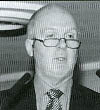 3. Mike McGlynn (F60) proposed that any DaC member who had
been with the Society for two years or more should receive full
Society membership and any benefits that could bring (as in
should the Society ever be sold and members received a share
out). Mike said that we were doing very well and even though he
had no problem with the Board’s possible changes in management
structure, he still preferred to stay as a Mutual. However he
didn’t consider it was fair for drivers to come to DaC, work
hard but not be treated the same as other members. So he
proposed that so long as you had been with the Society for at
least two years, you would be an equal member. He added that he
would rather any share-out be according to length of service,
but the Chairman had told him all payments had to be equal,
otherwise DaC could be open to a legal challenge.
3. Mike McGlynn (F60) proposed that any DaC member who had
been with the Society for two years or more should receive full
Society membership and any benefits that could bring (as in
should the Society ever be sold and members received a share
out). Mike said that we were doing very well and even though he
had no problem with the Board’s possible changes in management
structure, he still preferred to stay as a Mutual. However he
didn’t consider it was fair for drivers to come to DaC, work
hard but not be treated the same as other members. So he
proposed that so long as you had been with the Society for at
least two years, you would be an equal member. He added that he
would rather any share-out be according to length of service,
but the Chairman had told him all payments had to be equal,
otherwise DaC could be open to a legal challenge.
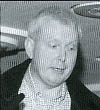 Paul Shorter (H88) said that the Board’s comment on amounts
should we ever be sold was not the only thing to consider.
Fairness to members was just as important.
Paul Shorter (H88) said that the Board’s comment on amounts
should we ever be sold was not the only thing to consider.
Fairness to members was just as important.
Russell Poluck (T55) made the point that
younger drivers didn’t seem interested and asked for a show of
hands to see how many of the 82 (approx) present had been with
the Society for less than two years? Just six raised their han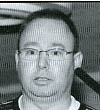 ds. ds.
A very nervous Gary Cowderoy (N17) said he was new to
DaC, but had been with ComCab for 9 years |
previously. He said that when you came
to DaC, you very soon realised that you were part of something
different compared to the others. He felt that the way forward
was to look at our history, move forward to the digital world,
but to understand that most of those that come here did so
because of DaC’s reputation and not for any possible payout. He
said we should protect what we had and carry it forward to the
future. Gary’s nerves dissipated when he was given a round of
applause and a "well done" from the Chairman!
Trevor Denton (Y18) then spoke on the number of extra members
on DaC since 2004 and said that the issue had to be settled one
way or another. He said if not he would put forward a rule
change next year giving all those who had joined since 2004 the
right to speak on the subject, but not get any financial gain.
He said those members would have an unbiased view.
The Chairman responded that surely if these drivers could vote but
not gain any financial reward, they would probably vote no. He
added that the BoM had no problem with the rule change if that
is what members wanted.
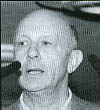 Malcolm Levant (F24) felt that the rule change would fall,
but should be on the next AGM agenda as a 2-year watershed
removing any fixed dates and just have it as members not on DaC
for 2 years would not be eligible for any benefits of that
nature.
Malcolm Levant (F24) felt that the rule change would fall,
but should be on the next AGM agenda as a 2-year watershed
removing any fixed dates and just have it as members not on DaC
for 2 years would not be eligible for any benefits of that
nature.
The Chairman responded that was what Mike was proposing.
Mike McGlynn then summed up.
Propositions
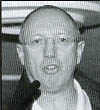 Keith
D’urso (M57) - known better to DaC
drivers as Santa Claus when he dresses up to collect money for
charity - put forward the only proposition. If successful, it
would amend the ‘going home’ facility to allow evening / night
drivers to book into a city zone (EC1 – EC5) or E140, rather
than as before when you could only ‘bid’ for a trip in these
zones. He claimed the current facility was unworkable and said
his idea was to book in but for the trip still to be AD. All
you’d know was that it was going to your home zone or to a back
up. You couldn’t pick or choose. Keith
D’urso (M57) - known better to DaC
drivers as Santa Claus when he dresses up to collect money for
charity - put forward the only proposition. If successful, it
would amend the ‘going home’ facility to allow evening / night
drivers to book into a city zone (EC1 – EC5) or E140, rather
than as before when you could only ‘bid’ for a trip in these
zones. He claimed the current facility was unworkable and said
his idea was to book in but for the trip still to be AD. All
you’d know was that it was going to your home zone or to a back
up. You couldn’t pick or choose.
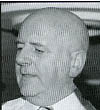 Bill Chatterway (A43) spoke against and said when he went
home, there were more cabs than jobs in those zones. Brian
Rice said the Board were against it because they felt the
perception would be from those drivers still working that all
the good jobs will be going to those at the point of a rank
waiting for their trip. He understood Keith’s point about it
being AD, but reiterated that drivers would see several cabs on
the point and would feel that any good jobs would go to those
drivers.
Bill Chatterway (A43) spoke against and said when he went
home, there were more cabs than jobs in those zones. Brian
Rice said the Board were against it because they felt the
perception would be from those drivers still working that all
the good jobs will be going to those at the point of a rank
waiting for their trip. He understood Keith’s point about it
being AD, but reiterated that drivers would see several cabs on
the point and would feel that any good jobs would go to those
drivers.
Keith D’urso came back and said that he had 40 night drivers
signing the petition and not one had voiced concern or said they
would not book into EC5 or E140. Brian responded that he
understood Keith’s point, but that it was up to the membership
as a whole and not just the 40.
Any Other Business
Sid Nathan (K88) was first up and
wanted to know why we had no voice channel? Brian explained that
in order to try and improve signals at a time when turnover was
up 34% in just two years, DaC decided to use that channel, which
wasn’t really used much, and convert it into a data channel. He
added that it was working reasonably well, but was delighted to
tell those present that we had just received another 3 High
Frequency VHF channels from Ofcom. He then explained about the
radios (information is in the Chairman’s column on page 4). Sid
asked about emergency facilities and Brian explained how the
panic button now worked. Instead of blocking out everything as
before, now one dispatcher will automatically get the
coordinates of the driver in trouble, whilst the other would
attempt to make contact and if a problem was confirmed, the GPS
coordinates would be put out over the air. He added that if the
extra 3 channels worked as well as was hoped, the situation
regarding voice might be looked at again. Sid then raised the
point of the possible rule change that was stopped and which
would have enabled a compulsory stoppage of £5 from every driver
towards helping a sick or dying member and wanted to know why it
was stopped? Brian said the BoM were not against it, but a
compulsory collection was illegal. There is no problem with
someone making a voluntary collection and going round with the
hat, added the Chairman, but it just was not legal to make it
compulsory.
Ray Sorene (A53) queried what he claimed were a spate of
incorrect details given on terminals since moving to East Road
and the increase in telephonist numbers.
Brian admitted that we had an increase in
staff and that until more experienced, they might be more
prone to errors. He asked Call
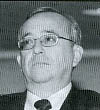 Centre
Manager Keith Cain to respond. Keith also agreed that it
was happening, but said that it was always difficult when you
employed new staff. He said that drivers should remember that
those taking calls did not have our knowledge of London and they
might not even know the postal code for Oxford Street. Keith
explained that every call taker was given one month training in
the call centre. He added that listening to calls and writing
down details was a skill and some take longer than others to
learn it. He said that anyone needing to write down details of a
phone message with 100% accuracy would realise that it wasn’t
easy. It would be great, Keith added, if all the telephonists we
employed had previous experience of this job, but that wasn’t
always possible. He also said that the number of passengers
ordering cabs online and therefore filling in their own details
had increased (between 1500 to 2000 each day). They are also
trained, but still don’t always fill in correct details. Our
controllers do try to watch for errors but you can’t spot every
one. Keith ended by saying that 3 or 4 of the latest batch taken
on failed to meet the training criteria and were not taken on,
so we don’t just take anybody, he said, and just hope for the
best. Centre
Manager Keith Cain to respond. Keith also agreed that it
was happening, but said that it was always difficult when you
employed new staff. He said that drivers should remember that
those taking calls did not have our knowledge of London and they
might not even know the postal code for Oxford Street. Keith
explained that every call taker was given one month training in
the call centre. He added that listening to calls and writing
down details was a skill and some take longer than others to
learn it. He said that anyone needing to write down details of a
phone message with 100% accuracy would realise that it wasn’t
easy. It would be great, Keith added, if all the telephonists we
employed had previous experience of this job, but that wasn’t
always possible. He also said that the number of passengers
ordering cabs online and therefore filling in their own details
had increased (between 1500 to 2000 each day). They are also
trained, but still don’t always fill in correct details. Our
controllers do try to watch for errors but you can’t spot every
one. Keith ended by saying that 3 or 4 of the latest batch taken
on failed to meet the training criteria and were not taken on,
so we don’t just take anybody, he said, and just hope for the
best.
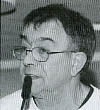 David Kupler (Y74) was next up and asked Mike Tovey if we
could spend the interest on our £3.1million in the bank on
anything we wanted such as donations to sick or dying members,
leaving less for the taxman?
David Kupler (Y74) was next up and asked Mike Tovey if we
could spend the interest on our £3.1million in the bank on
anything we wanted such as donations to sick or dying members,
leaving less for the taxman?
Mike Tovey responded that what David was proposing would have a
negligible effect on tax and that we had some good tax losses
"in store" that we could use in the future. He added that the
tax on the interest was fairly low and that giving donations
would make little difference to the tax. Brian added that the
HMRC would deduct the tax on interest at source and we could
then do what we wanted with the rest.
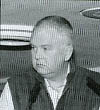 Paul Jenner (L17) asked what procedures were in place in
case of a total system crash linking the question to the loss of
the voice channel?
Paul Jenner (L17) asked what procedures were in place in
case of a total system crash linking the question to the loss of
the voice channel?
Brian’s honest answer was that if the system totally crashed, we
would be unable to do anything and trying to get it out on a
single voice channel would be impossible. He spoke of the one
time in the last 18 years where we had to temporarily go to
voice dispatching. It had been at 3 in the morning with around
25 jobs to cover and it had been a complete disaster! However,
whilst our competitors were going over to the public GPRS
network, we are working on 8 aerial sites, which gives us a
chance.
Paul then asked about increasing the run-ins. Brian said that we
deserved it but that we would be increasing prices by around 5%
in April anyway and that increasing run-ins would make our
position very difficult with customers currently looking to cut
costs. They are already asking why our increase was double the
rate of inflation and added that we didn’t want them to perceive
us as being greedy.
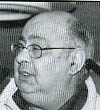 Russell Poluck (T55) asked whether there was any news on new
screens for the cabs? Brian said that the screen resolution now
was so much better now than when we had ours, but signals had to
take priority. Once that has been sorted, we know exactly what
we want and the resolution would be excellent. Russell asked one
other question about destinations and the way we can get
incorrect information. He wanted to know whether we could
improve that facility with a software change? To an audible gasp
from the floor, Brian replied that the new terminals would come
complete with satnav fitted.
Russell Poluck (T55) asked whether there was any news on new
screens for the cabs? Brian said that the screen resolution now
was so much better now than when we had ours, but signals had to
take priority. Once that has been sorted, we know exactly what
we want and the resolution would be excellent. Russell asked one
other question about destinations and the way we can get
incorrect information. He wanted to know whether we could
improve that facility with a software change? To an audible gasp
from the floor, Brian replied that the new terminals would come
complete with satnav fitted.
John Rubini (F55) made another visit to the rostrum and asked
Mike Tovey about the attempt to change status to a PLC and
whether the decision not to convert had a detrimental effect on
the Society? Mike said he didn’t know the answer, but in order
to give a view would have to go into an area he didn’t believe
was his authority. John followed up by asking Brian whether
there had been any recent interest from anywhere in buying
Dial-a-Cab? Brian said there had been none at all.
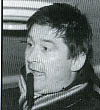 John Fisher (C45) ended the day’s proceedings to give the
Editor’s typing finger a rest by asking about a trip he had
recently done where, on page 2, it stated that all airports were
to go in cars. He named the account and asked if it was true.
Brian said that is was as indeed it also was with three other
large accounts. Brian gave an example airport fare from
Docklands of £46 to Heathrow in a car. We can’t compete against
that, said the Chairman, and ended by saying that it was purely
down to cost.
John Fisher (C45) ended the day’s proceedings to give the
Editor’s typing finger a rest by asking about a trip he had
recently done where, on page 2, it stated that all airports were
to go in cars. He named the account and asked if it was true.
Brian said that is was as indeed it also was with three other
large accounts. Brian gave an example airport fare from
Docklands of £46 to Heathrow in a car. We can’t compete against
that, said the Chairman, and ended by saying that it was purely
down to cost.
Brian Rice brought the meeting to a close by telling those
present:
"This was my 12th year as Chairman and the 13th meeting I have
taken and I must say that this one was the most attentive,
civilised and respectful membership of all the meetings and it
was so nice to have drivers get up and ask sensible questions
without setting out to try and catch anyone.
The voting results:
To approve the minutes of the 2006 AGM – For 98.6% Against 1.4%
To approve the Annual Report –For 98.5% Against 1.5%
To reappoint Chantrey Vellacott – For 97.5% Against 2.5%
To amend rule 2 (registered office) – For 96.5% Against 3.5%
To amend rule 26 (dissolution) – For 91.3% Against 8.7%
To amend rule 4b (Terms of admission, M.McGlynn) – For 53.2%
Against 46.8%
To amend going home facility proposition K.D’urso) – For 36.9%
Against 63.1%
Alan Fisher
|
 First
to speak was Paul Tully (Y40) who spoke on whether DaC rules
allowed us to operate our Concierge system and disagreed with
the Chairman’s assessment of the situation given at the previous
AGM. Paul believed that the system serviced the private hire
community, which he claims went against the rules.
First
to speak was Paul Tully (Y40) who spoke on whether DaC rules
allowed us to operate our Concierge system and disagreed with
the Chairman’s assessment of the situation given at the previous
AGM. Paul believed that the system serviced the private hire
community, which he claims went against the rules.
 First
to question the Chairman was Stanley Roth (Y53). He asked
about Brian’s comments on making the BoM more professional and
queried whether he was suggesting a parliamentary system where
we would have more civil servants, but still vote for the Board?
First
to question the Chairman was Stanley Roth (Y53). He asked
about Brian’s comments on making the BoM more professional and
queried whether he was suggesting a parliamentary system where
we would have more civil servants, but still vote for the Board? Next up was John Edwardes (H05) who said that he agreed
100% with Paul Tully. He said that his future time left with DaC
wasn’t that long. He spoke of the war’s end and how Britain had
so much of the world’s car manufacturers and asked how many were
still left? He added that so much of our manufacturing base had
now gone and compared it to DaC, which in his words "…had been
bloody successful – and I don’t feel like changing it!"
Next up was John Edwardes (H05) who said that he agreed
100% with Paul Tully. He said that his future time left with DaC
wasn’t that long. He spoke of the war’s end and how Britain had
so much of the world’s car manufacturers and asked how many were
still left? He added that so much of our manufacturing base had
now gone and compared it to DaC, which in his words "…had been
bloody successful – and I don’t feel like changing it!" Laurence Kelvin (W88) was next up. He asked about the
chain of command if we began to employ more professionals
and wondered who would answer to whom? He gave Sales as an
example. Brian Rice responded by saying that in actual
fact there had been no one in charge of Sales since last
February and that he had been doing the job. The problem was
that because DaC has been so successful, as soon as we got
someone to head Sales, someone comes along and "pinches" them!
He added that it could be that no one from the BoM would be
associated with that position, but would actually instruct
whomever did the job which direction we’d like to go. The Board
might suggest targeting a particular group and whoever was doing
the job would report directly to the BoM. Laurence came back and
gave another example as in if someone was brought in and wanted
to change door logos, would they have the authority to go ahead?
Brian again responded that it would be a Board decision.
Laurence came back a third time and praised Brian’s leadership.
He claimed that he was very underpaid for what he did and
queried whether if professionals came in, they would have to be
paid market rates and would then be earning far more than the
boss – ie the Chairman? Brian said it depended on whom you
employed, adding that even now on an hourly basis, he wasn’t the
highest paid member at DaC House. He said that no one could know
what the future would bring but that if his suggestion were to
come about, the BoM could turn round and say that the Chairman
should only work one day a week or on the other hand could say
that he could apply for the position of Chief Executive Officer
(CEO).
Laurence Kelvin (W88) was next up. He asked about the
chain of command if we began to employ more professionals
and wondered who would answer to whom? He gave Sales as an
example. Brian Rice responded by saying that in actual
fact there had been no one in charge of Sales since last
February and that he had been doing the job. The problem was
that because DaC has been so successful, as soon as we got
someone to head Sales, someone comes along and "pinches" them!
He added that it could be that no one from the BoM would be
associated with that position, but would actually instruct
whomever did the job which direction we’d like to go. The Board
might suggest targeting a particular group and whoever was doing
the job would report directly to the BoM. Laurence came back and
gave another example as in if someone was brought in and wanted
to change door logos, would they have the authority to go ahead?
Brian again responded that it would be a Board decision.
Laurence came back a third time and praised Brian’s leadership.
He claimed that he was very underpaid for what he did and
queried whether if professionals came in, they would have to be
paid market rates and would then be earning far more than the
boss – ie the Chairman? Brian said it depended on whom you
employed, adding that even now on an hourly basis, he wasn’t the
highest paid member at DaC House. He said that no one could know
what the future would bring but that if his suggestion were to
come about, the BoM could turn round and say that the Chairman
should only work one day a week or on the other hand could say
that he could apply for the position of Chief Executive Officer
(CEO). 3. Mike McGlynn (F60) proposed that any DaC member who had
been with the Society for two years or more should receive full
Society membership and any benefits that could bring (as in
should the Society ever be sold and members received a share
out). Mike said that we were doing very well and even though he
had no problem with the Board’s possible changes in management
structure, he still preferred to stay as a Mutual. However he
didn’t consider it was fair for drivers to come to DaC, work
hard but not be treated the same as other members. So he
proposed that so long as you had been with the Society for at
least two years, you would be an equal member. He added that he
would rather any share-out be according to length of service,
but the Chairman had told him all payments had to be equal,
otherwise DaC could be open to a legal challenge.
3. Mike McGlynn (F60) proposed that any DaC member who had
been with the Society for two years or more should receive full
Society membership and any benefits that could bring (as in
should the Society ever be sold and members received a share
out). Mike said that we were doing very well and even though he
had no problem with the Board’s possible changes in management
structure, he still preferred to stay as a Mutual. However he
didn’t consider it was fair for drivers to come to DaC, work
hard but not be treated the same as other members. So he
proposed that so long as you had been with the Society for at
least two years, you would be an equal member. He added that he
would rather any share-out be according to length of service,
but the Chairman had told him all payments had to be equal,
otherwise DaC could be open to a legal challenge. Paul Shorter (H88) said that the Board’s comment on amounts
should we ever be sold was not the only thing to consider.
Fairness to members was just as important.
Paul Shorter (H88) said that the Board’s comment on amounts
should we ever be sold was not the only thing to consider.
Fairness to members was just as important. ds.
ds.
 Brian
Rice disagreed with Paul’s assessment and said that DaC did
not service the private hire industry, but serviced our clients.
He spoke of the number of platforms similar to Concierge that
were now available and added that if we did not provide
Concierge, there would be others who would – some of which were
not even connected to the cab industry but software houses just
selling the system. He made the point that the wheel could not
be uninvented and that we had to take these people on at their
own game. He said that £17million of work went through Concierge
of which over £10million came to DaC and ended by saying that he
disagreed with Paul’s interpretation of the rules.
Brian
Rice disagreed with Paul’s assessment and said that DaC did
not service the private hire industry, but serviced our clients.
He spoke of the number of platforms similar to Concierge that
were now available and added that if we did not provide
Concierge, there would be others who would – some of which were
not even connected to the cab industry but software houses just
selling the system. He made the point that the wheel could not
be uninvented and that we had to take these people on at their
own game. He said that £17million of work went through Concierge
of which over £10million came to DaC and ended by saying that he
disagreed with Paul’s interpretation of the rules. Trevor Denton (Y18) was next up to question Brian. He
reiterated Laurence’s point on costs and said that if we could
get the extra people we required for £250,000 we’d have done
well, but went on to ask about current BMs applying for
positions that they were already currently doing anyway? Brian
said that the point was good and added that if he were the owner
of DaC, he would be concerned and called the structure of the
Society ‘flaky’, depending too much on certain individuals. He
said that there were no contracts or terms of employment and BMs
who ran the business were employed on an hourly basis. That’s
wrong, said Brian. They could get up from this
Trevor Denton (Y18) was next up to question Brian. He
reiterated Laurence’s point on costs and said that if we could
get the extra people we required for £250,000 we’d have done
well, but went on to ask about current BMs applying for
positions that they were already currently doing anyway? Brian
said that the point was good and added that if he were the owner
of DaC, he would be concerned and called the structure of the
Society ‘flaky’, depending too much on certain individuals. He
said that there were no contracts or terms of employment and BMs
who ran the business were employed on an hourly basis. That’s
wrong, said Brian. They could get up from this Allen Togwell then entered the debate by saying there was a
lot of experience within the BoM but that it was possible that
the entire Board could come off in one fell swoop and could be
replaced by six "radicals." Brian Rice added that should
the BoM go to more of an advisory capacity with professionals
being brought in, that type of event would be far less likely
because any new people of that calibre would be tied down by a
contract.
Allen Togwell then entered the debate by saying there was a
lot of experience within the BoM but that it was possible that
the entire Board could come off in one fell swoop and could be
replaced by six "radicals." Brian Rice added that should
the BoM go to more of an advisory capacity with professionals
being brought in, that type of event would be far less likely
because any new people of that calibre would be tied down by a
contract.  John Rubini (F55) was next and spoke of Concierge. He wanted
confirmation that it would only be put into accounts who agreed
to have Concierge only and who did not use any PH companies that
weren’t on the system. Brian said that in most cases that still
applied. The exceptions were where directors from some accounts
had made their own arrangements. Perhaps they lived out of town,
he said, but went on to confirm that the vast majority of
Concierge users had it as it was originally set up.
John Rubini (F55) was next and spoke of Concierge. He wanted
confirmation that it would only be put into accounts who agreed
to have Concierge only and who did not use any PH companies that
weren’t on the system. Brian said that in most cases that still
applied. The exceptions were where directors from some accounts
had made their own arrangements. Perhaps they lived out of town,
he said, but went on to confirm that the vast majority of
Concierge users had it as it was originally set up.  Pat Keefe (G01) asked whether if any current BMs applied for
a new position, would they then have to give up their membership
of the Society pointing out that members would have loyalty to
DaC, whereas employed persons would not necessarily have the
same emotion?
Pat Keefe (G01) asked whether if any current BMs applied for
a new position, would they then have to give up their membership
of the Society pointing out that members would have loyalty to
DaC, whereas employed persons would not necessarily have the
same emotion? Sid Nathan (K88) was next up to his usual cheer after
informing some drivers to be quiet while he was talking! He then
went onto his point that DaC did not need any outsiders to help
run our business. "With a £52million turnover, we are doing very
well with our current Board," he said to a round of applause,
"we don’t need anyone else!"
Sid Nathan (K88) was next up to his usual cheer after
informing some drivers to be quiet while he was talking! He then
went onto his point that DaC did not need any outsiders to help
run our business. "With a £52million turnover, we are doing very
well with our current Board," he said to a round of applause,
"we don’t need anyone else!" Mike
Tovey of Society Auditors Chantrey Vellacott went through the
balance sheet next
Mike
Tovey of Society Auditors Chantrey Vellacott went through the
balance sheet next Joe Brazil (K16) then asked for confirmation that we were
still under the Friendly Society Act and wondered whether the
tax people had the power to change our status? Mike responded
that the tax situation was unconnected with DaC’s actual status
and that the only problem was that the revenue considered our
mutual status to be a long way from the way we carry out
business due to our success. He added that only DaC drivers
could change our status and that regardless of whether we stayed
that way, eventually we would probably lose the taxation battle
and have to pay tax on "profits" rather than just on interest at
the bank.
Joe Brazil (K16) then asked for confirmation that we were
still under the Friendly Society Act and wondered whether the
tax people had the power to change our status? Mike responded
that the tax situation was unconnected with DaC’s actual status
and that the only problem was that the revenue considered our
mutual status to be a long way from the way we carry out
business due to our success. He added that only DaC drivers
could change our status and that regardless of whether we stayed
that way, eventually we would probably lose the taxation battle
and have to pay tax on "profits" rather than just on interest at
the bank. Malcolm Levant (F24) felt that the rule change would fall,
but should be on the next AGM agenda as a 2-year watershed
removing any fixed dates and just have it as members not on DaC
for 2 years would not be eligible for any benefits of that
nature.
Malcolm Levant (F24) felt that the rule change would fall,
but should be on the next AGM agenda as a 2-year watershed
removing any fixed dates and just have it as members not on DaC
for 2 years would not be eligible for any benefits of that
nature. Keith
D’urso (M57) - known better to DaC
drivers as Santa Claus when he dresses up to collect money for
charity - put forward the only proposition. If successful, it
would amend the ‘going home’ facility to allow evening / night
drivers to book into a city zone (EC1 – EC5) or E140, rather
than as before when you could only ‘bid’ for a trip in these
zones. He claimed the current facility was unworkable and said
his idea was to book in but for the trip still to be AD. All
you’d know was that it was going to your home zone or to a back
up. You couldn’t pick or choose.
Keith
D’urso (M57) - known better to DaC
drivers as Santa Claus when he dresses up to collect money for
charity - put forward the only proposition. If successful, it
would amend the ‘going home’ facility to allow evening / night
drivers to book into a city zone (EC1 – EC5) or E140, rather
than as before when you could only ‘bid’ for a trip in these
zones. He claimed the current facility was unworkable and said
his idea was to book in but for the trip still to be AD. All
you’d know was that it was going to your home zone or to a back
up. You couldn’t pick or choose. Bill Chatterway (A43) spoke against and said when he went
home, there were more cabs than jobs in those zones. Brian
Rice said the Board were against it because they felt the
perception would be from those drivers still working that all
the good jobs will be going to those at the point of a rank
waiting for their trip. He understood Keith’s point about it
being AD, but reiterated that drivers would see several cabs on
the point and would feel that any good jobs would go to those
drivers.
Bill Chatterway (A43) spoke against and said when he went
home, there were more cabs than jobs in those zones. Brian
Rice said the Board were against it because they felt the
perception would be from those drivers still working that all
the good jobs will be going to those at the point of a rank
waiting for their trip. He understood Keith’s point about it
being AD, but reiterated that drivers would see several cabs on
the point and would feel that any good jobs would go to those
drivers. Centre
Manager Keith Cain to respond. Keith also agreed that it
was happening, but said that it was always difficult when you
employed new staff. He said that drivers should remember that
those taking calls did not have our knowledge of London and they
might not even know the postal code for Oxford Street. Keith
explained that every call taker was given one month training in
the call centre. He added that listening to calls and writing
down details was a skill and some take longer than others to
learn it. He said that anyone needing to write down details of a
phone message with 100% accuracy would realise that it wasn’t
easy. It would be great, Keith added, if all the telephonists we
employed had previous experience of this job, but that wasn’t
always possible. He also said that the number of passengers
ordering cabs online and therefore filling in their own details
had increased (between 1500 to 2000 each day). They are also
trained, but still don’t always fill in correct details. Our
controllers do try to watch for errors but you can’t spot every
one. Keith ended by saying that 3 or 4 of the latest batch taken
on failed to meet the training criteria and were not taken on,
so we don’t just take anybody, he said, and just hope for the
best.
Centre
Manager Keith Cain to respond. Keith also agreed that it
was happening, but said that it was always difficult when you
employed new staff. He said that drivers should remember that
those taking calls did not have our knowledge of London and they
might not even know the postal code for Oxford Street. Keith
explained that every call taker was given one month training in
the call centre. He added that listening to calls and writing
down details was a skill and some take longer than others to
learn it. He said that anyone needing to write down details of a
phone message with 100% accuracy would realise that it wasn’t
easy. It would be great, Keith added, if all the telephonists we
employed had previous experience of this job, but that wasn’t
always possible. He also said that the number of passengers
ordering cabs online and therefore filling in their own details
had increased (between 1500 to 2000 each day). They are also
trained, but still don’t always fill in correct details. Our
controllers do try to watch for errors but you can’t spot every
one. Keith ended by saying that 3 or 4 of the latest batch taken
on failed to meet the training criteria and were not taken on,
so we don’t just take anybody, he said, and just hope for the
best. David Kupler (Y74) was next up and asked Mike Tovey if we
could spend the interest on our £3.1million in the bank on
anything we wanted such as donations to sick or dying members,
leaving less for the taxman?
David Kupler (Y74) was next up and asked Mike Tovey if we
could spend the interest on our £3.1million in the bank on
anything we wanted such as donations to sick or dying members,
leaving less for the taxman?
 Paul Jenner (L17) asked what procedures were in place in
case of a total system crash linking the question to the loss of
the voice channel?
Paul Jenner (L17) asked what procedures were in place in
case of a total system crash linking the question to the loss of
the voice channel? Russell Poluck (T55) asked whether there was any news on new
screens for the cabs? Brian said that the screen resolution now
was so much better now than when we had ours, but signals had to
take priority. Once that has been sorted, we know exactly what
we want and the resolution would be excellent. Russell asked one
other question about destinations and the way we can get
incorrect information. He wanted to know whether we could
improve that facility with a software change? To an audible gasp
from the floor, Brian replied that the new terminals would come
complete with satnav fitted.
Russell Poluck (T55) asked whether there was any news on new
screens for the cabs? Brian said that the screen resolution now
was so much better now than when we had ours, but signals had to
take priority. Once that has been sorted, we know exactly what
we want and the resolution would be excellent. Russell asked one
other question about destinations and the way we can get
incorrect information. He wanted to know whether we could
improve that facility with a software change? To an audible gasp
from the floor, Brian replied that the new terminals would come
complete with satnav fitted. John Fisher (C45) ended the day’s proceedings to give the
Editor’s typing finger a rest by asking about a trip he had
recently done where, on page 2, it stated that all airports were
to go in cars. He named the account and asked if it was true.
Brian said that is was as indeed it also was with three other
large accounts. Brian gave an example airport fare from
Docklands of £46 to Heathrow in a car. We can’t compete against
that, said the Chairman, and ended by saying that it was purely
down to cost.
John Fisher (C45) ended the day’s proceedings to give the
Editor’s typing finger a rest by asking about a trip he had
recently done where, on page 2, it stated that all airports were
to go in cars. He named the account and asked if it was true.
Brian said that is was as indeed it also was with three other
large accounts. Brian gave an example airport fare from
Docklands of £46 to Heathrow in a car. We can’t compete against
that, said the Chairman, and ended by saying that it was purely
down to cost.